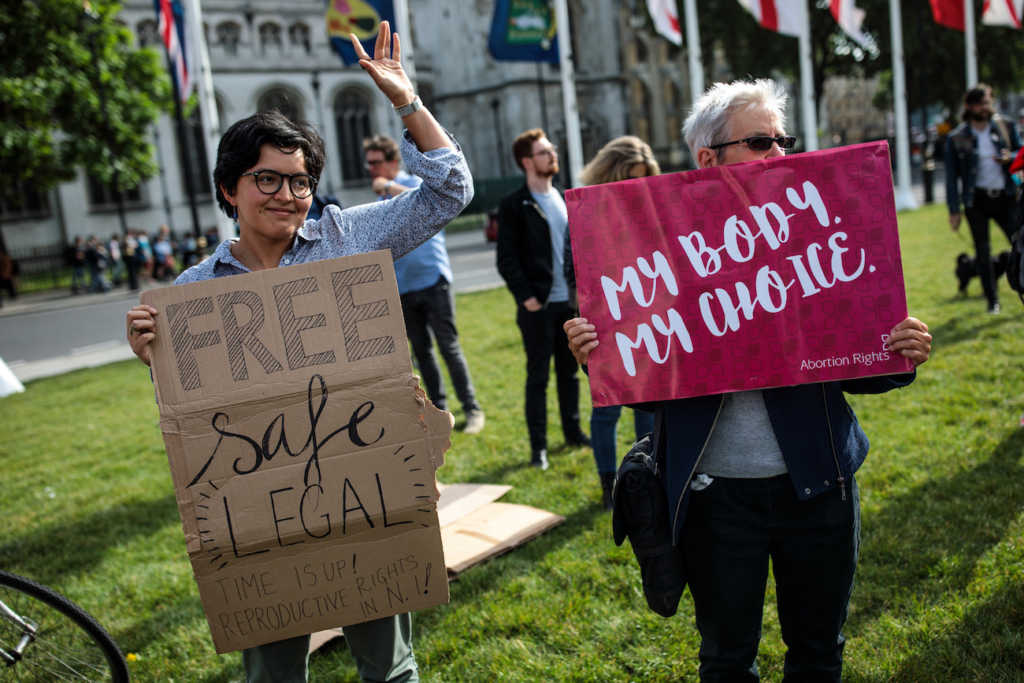Rachel Held Evans, a progressive Christian writer known for her oft-controversial takes on today’s hot-button issues, has sparked controversy again. This time, it came on the heels of Supreme Court Justice Anthony Kennedy’s decision to announce his retirement.
Kennedy’s decision to step down from the high court on July 31 sets the stage for what is certain to be yet another highly contested and intensely divisive season of rancorous political theater at the expense of the nation’s loftiest post on the judiciary branch: a seat on the Supreme Court of the United States of America.
On the campaign trail, President Donald Trump, who has already appointed one justice, Judge Neil Gorsuch, to the court, said a challenge to the landmark 1973 decision on Roe v. Wade, which made abortion legal across the country, would result “automatically” if he successfully appointed one or two justices to the bench.
Former Obama Faith Adviser Shares Tips for Coming Supreme Court Battle Over Kennedy’s Seat
This will be the president’s second nomination, potentially swinging the all-important court to the right for a generation. And the left is already bracing for what could result in a major blow to one issue at the center of both politics and morality: abortion.
So following Kennedy’s announcement, Evans took to Twitter, where she seemingly argued in a series of since-deleted tweets for the protection of Roe v. Wade on the grounds that its repeal would disproportionately impact black and Hispanic communities.
While Evans described herself as “pro-life by conviction,” she called her views of abortion both “complex” and “ever-evolving.” She then asked whether pro-life conservatives “have considered what overturning Roe v. Wade would look like in actuality.” But the Christian writer’s considerations didn’t look much like the typical arguments in defense of abortion. Evans, instead, went in an entirely different direction: she turned to race.
“It’s important to understand that the abortion rate is highest in poor communities of color,” she wrote. “The rate among black women is almost [five times] that of white women and the rate among Hispanic women more than double.”
Evans continued, “So when I see conservatives celebrating the ‘millions of lives’ that will be saved if Roe is overturned, I wonder if they realize a significant percentage of these lives would be in poor communities of color — communities this administration has actively oppressed.”
Evans was immediately met with critics who called her out for seeming to defend abortion as somehow righteous because it is protecting would-be minority children from the dangers of the current president and his administration. The writer, as a result, deleted the thread entirely and started over late Thursday night, when she attempted to make sense of her murky tweets.
In a new thread, Evans claimed she intended to make a sweeping generalization about all conservatives, whom she cast as hypocrites for being opposed to abortion while at the same time standing by many of Trump’s “racist” views and policies.
…I am not advocating eugenics. Anyone familiar with my work knows that. I am pro-life in my convictions, though my views on the legalities of abortion are complex, evolving, and outlined in more detail elsewhere…
— Rachel Held Evans (1981-2019) (@rachelheldevans) June 29, 2018
…It’s upsetting to see my words twisted & taken out of context to suggest I support something I revile. We ought to be able to find common ground here. We ought to be able to talk about the systemic injustices that contribute to abortion without calling people “baby killers”..
— Rachel Held Evans (1981-2019) (@rachelheldevans) June 29, 2018
Evans explained her position more thoroughly in a blog post leading up to the 2016 presidential election. She argued Christians should support then-Democratic presidential candidate Hillary Clinton over Trump because, while the former secretary of state isn’t “your pro-life savior,” she is mindful of the racial inequities in American life, and therefore, “far better positioned to keep the abortion rate at the record low it saw under President Obama.”
The glaring problem with that argument, though, is while one can make a claim that an entire demographic, in this case, conservatives, is hypocritical in the whole of their perspective, individual issues — such as abortion — stand alone as either morally good or morally bad. It’s Evans’ prerogative to argue conservatives aren’t, in her view, adequately pro-life beyond pregnancy, but even if that’s the case, it doesn’t negate the moral question over abortion.
Three Female Judges Trump Could Nominate to Replace Anthony Kennedy
Abortion shouldn’t be a bargaining chip, but it’s sadly become one in today’s political climate, where the either/or fallacy reigns supreme and outrage is the guiding philosophy.
For his part, Trump is expected to nominate Kennedy’s successor by July 9, and the battle over his or her confirmation will certainly test just how outrageous our politics can become.



